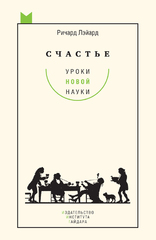ГЛАВА 4. ИНТЕЛЛЕКТ, ПОЗНАНИЕ, ПАМЯТЬ
СПАСИБО ЗА ВОСПОМИНАНИЯ!
Литература
Garry, М., & Loftus, Е. (1994). Repressed memories of childhood trauma: Could some of them be suggested? USA Today magazine, 122, 82–85.
Kebbell, M.t & Giles» С. (2000). Some experimental influences of lawyers’ complicated questions on eyewitness confidence and accuracy. Journal of Psychologyf 134(2), 129–139.
Loftus, E.f & Hoffman, H. (1989). Misinformation and memory: The creation of new memories. Journal of Experimental Psychology: General, 118,100–104.
Loftus, E., Joslyn, S., & Polage, D. (1998). Repression: A mistaken impression? Development and Psychopathology, 10(4), 781–792.
Loftus, E., & Ketcham, K. (1994). The myth a/repressed memories: False accusations and allegations of sexual abuse. New York: St. Martin’s Press.
Pope, K. (1995). What psychologists better know about recovered memories, research: Lawsuits, and the pivotal experiment. Clinical Psychology: Science and Practice, 2(3), 304–315.
Shaw, J., Garcia, L., & McClure, K. (1999). A lay perspective on the accuracy of eyewitness testimony. Journal of Applied Social Psychology, 29(1), 52–71.
Smith, V., & Ellsworth, P. (1987). The social psychology of eyewitness accuracy: Leading questions and communicator expertise. Journal of Applied Psychology, 72, 294–300.













